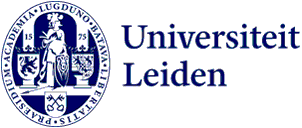Programme
From ancient sites to heritage rescue, from digital sciences to the evolution of human origins: at Archaeology & Society, you will learn about the many multidisciplinary aspects of archaeological research.
Our central question
Above all, this track encourages you to ask the question of why archaeology is and can continue to be relevant today. This track lets you engage in applying knowledge of past human societies in order to better understand and actively improve our current and future societies.
Courses
Orientation seminar (5 EC, year 1)
The Orientation Seminar, Archaeology and Society: Current Issues, introduces the main theme of the track by exploring the multifaceted aspects of archaeological research as well as the relevance of societal outreach. Each lecture focuses on a specific current issue, such as politics and science, heritage threats and sustainability. Through several guest speakers you get to engage with experts from around the world and discuss applied methods, possible solutions, and the long-term relevance of knowledge sharing. Main attention is paid to research projects and societal programs in Central Asia and East Africa.
Theory Seminar (5 EC, year 2)
In the Theory Seminar, Future Cities – Urban Pasts, you will work on one of the most enigmatic inventions of humankind: The City. Urban life has become more common across the globe. The current level and speed of urbanisation suggest cities will play significant roles in the future of humanity. This course explores cities and the urbanism process from a long-term perspective by visiting critical themes such as transportation to envision better urban transitions since the past offers a plethora of successes and failures. Additional guest speakers provide diverse perspectives and methodologies to study cities.
Bachelor Honours Class (5 EC, year 2 or 3)
Taking a Bachelor Honours Class is a prerequisite part of the programme. At the Archaeology faculty, we organise the Honours Class Ritual Art and Cultural Heritage of Insular Southeast Asia. You will learn about the meanings and functions of indigenous ritual art from insular South East Asia, guided by Heritage experts and professionals. This class teaches you to use analytical tools that are applicable to both archaeology and anthropology. You will acquire knowledge and skills that are essential for handling numerous cultural heritage issues that are often debated in our societies today, such as ownership, repatriation and the impact of colonialism. The class includes visits to museum archives where you get to participate in ongoing work.
Honours Internship (5 EC, year 2 or 3)
As archaeologists, we go out into the world of today in order to study the world of the past. This means that archaeologists often have to navigate complex political situations, and work according to the regulations of global institutes like UNESCO.
Our Honours track encourages students to get involved with such initiatives through internships and team and/or individual projects. You can choose whether your wish to pursue a research or societal internship. This offers a wide range of topics ranging from archaeological research, cultural heritage projects, societal or social projects, or science journalism.
Honours Assignment (5 EC, year 2 or 3)
The Assignment can consist of (or result in):
-
A written essay assignment on a related research topic;
-
A digital project resulting in media output;
-
A creative project (i.e. an exhibition or other output);
We encourage students to follow their interests, pursuits and skillsets. Create a team with fellow Honours students on a research, outreach or creative project. Or engage in a project on your own.
Prospectus
You can find more details about the courses in the prospectus.

Staff
The ‘Archaeology & Society’ Honours track is coordinated by Dr. Marike van Aerde, who manages the teaching program, communicates with individual students about their progress, and advises on and approves internships.
The track’s Talent Coach, Dr. Alexander Verpoorte, offers individual Honours students extra guidance (practical and advisory) for specific study tracks they may wish to explore beyond Leiden University. You can contact him to discuss extra-curricular course choices and long-term career perspectives.
